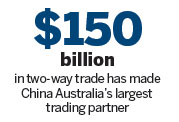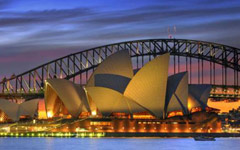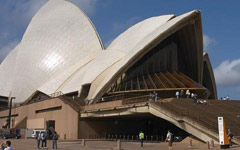China and Australia have moved closer to wrapping up a decadelong process to create a historic free trade agreement, the first China has signed with a major developed country.

After completion, tariffs will be lowered for Australia's biggest mineral and energy exports, and Australian food producers will gain better access to the Chinese market.
Premier Li Keqiang urged both countries on Monday to speed up free-trade negotiations when he met Australian Prime Minister Tony Abbott in Beijing.
"The Chinese government encourages investment in constructing and upgrading Australian rail lines, highways and airports, in addition to the food processing industry for agricultural and stockbreeding products," Li said.
 |
| Australia, China ink $860m live cattle deal |
 |
| FTA to benefit China, Australia widely: Australian trade minister |
China is Australia's largest trading partner, with two-way trade of around $150 billion in 2013, and its thirst for minerals has fueled more than 20 years of economic growth in Australia.
Last month, China replaced Indonesia to top Australia's export market in live cattle, after signing a deal worth more than $860 million. The deal will export 1 million live cattle to China each year.
The countries have been working on a free trade deal since 2005, and 21 rounds of talks regarding the free trade agreement have been conducted.
Zhang Yunlin, an APEC specialist at the Chinese Academy of Social Sciences, said negotiations were hampered by Australia's rigid approval process for foreign investment by Chinese State-owned enterprises and Beijing's concerns over opening its markets to Australian food.
"They were divided over which sectors will be, and to what extent, included in the free trade agreement. Australia wants more access to China's agriculture and livestock market, while China wants to invest more in Australia's mineral industry," Zhang said.
During Monday's meeting, Abbott said Australia would create a fair and convenient environment for Chinese investors.
"I am aware that China, by far, is Australia's strongest economic partner and that China is a major source of overseas students and people coming to Australia. This relationship is very important, and I look forward to strengthening it in the months and years ahead," Abbott said.
Australian Foreign Minister Julie Bishop told reporters on the sidelines of the Asia-Pacific Economic Cooperation forum in Beijing that Australian negotiators are pleased with the progress.
"If the agreement can be concluded by the time of the G20, we would be delighted. ... It has to be in our national interest and in the interest of Australian businesses and exporters, and the same with China," Bishop said.
President Xi Jinping will attend the G20 summit in Brisbane next week and then make a formal state visit.
Zhang said good progress was made on investment access and food access in September on the latest round of free trade agreement talks, and he expects Australia to offer a similar quota of investment that it has offered in deals with Japan and South Korea.
Australia offers Japan and South Korea a $970 million foreign investment screening threshold for private investment, in addition to a $13.5 million threshold for investment in agricultural land and $48 million for agribusiness.
